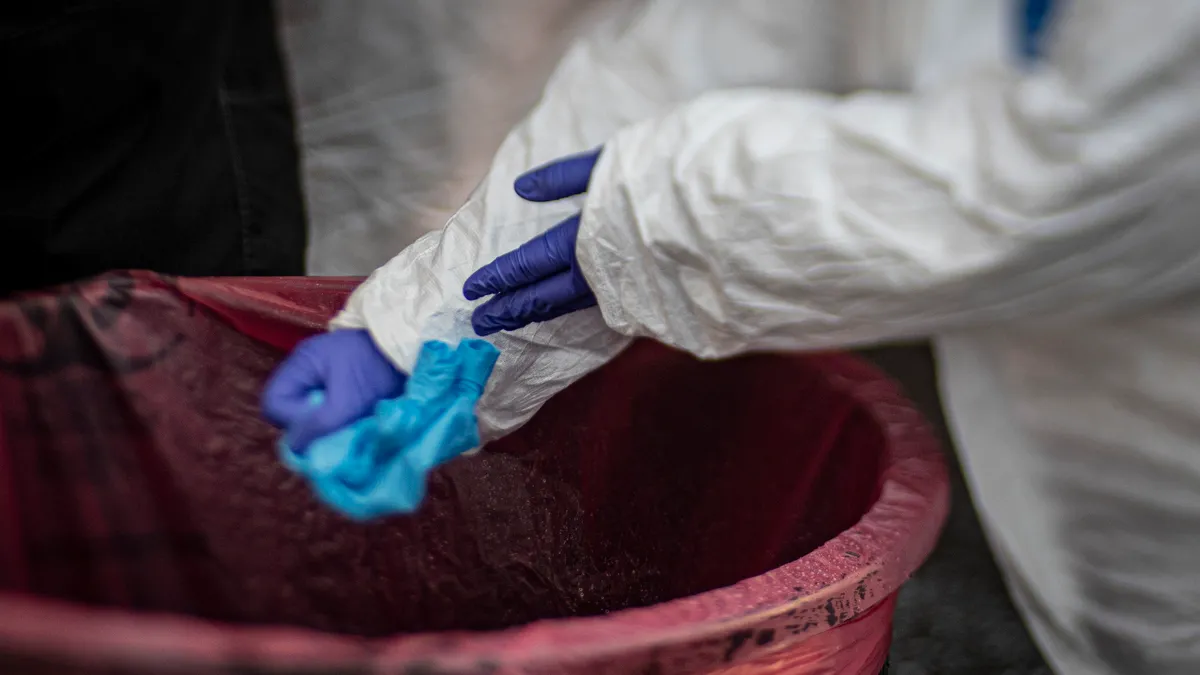Dive Brief:
- The Johns Hopkins Bloomberg School of Public Health released a report on Thursday with seven recommendations for a comprehensive response to the new coronavirus (COVID-19) in metropolitan areas. Those recommendations are:
- Convene an expert advisory committee
- Protect and monitor at-risk populations
- Use a call center to help with the public health response and provide support to people with COVID-19 symptoms
- Create community-based testing tests
- Offer social services to individuals in isolation and quarantine, and for those "adversely affected" by the coronavirus control measures
- Provide comprehensive and informational public messages on a daily basis
- Inform and update response strategies with data
- Adopting the recommendations will require a significant amount of resources, so cities should consider public-private partnerships (P3s) to help achieve and support the seven recommendations, the report argues.
- In cities where the number of cases appear to be declining, these recommendations could speed up the decline and even create room to relax current social distancing policies, according to the report.
Dive Insight:
While these recommendations are well-intentioned, some cities are struggling to find the resources to implement them as federal leadership wavers — the Trump administration's most recent stimulus package only includes aid for cities with populations of 500,000 or more — and resources like personal protective equipment (PPE) are limited.
The report urges as much testing as possible at community sites "to reduce patient flow to hospitals, keep infectious patients from seeking care at multiple primary care offices and from using public transport." Cities including Washington, DC have established drive-through COVID-19 testing sites, but most cities have had a hard time securing a sufficient number of tests.
In fact, 92% of cities reported not having an adequate amount of supply test kits, according to a recent U.S. Conference of Mayors survey. The vast majority of cities also said in the survey they didn't have enough face masks for first responders; 85% said they did not have enough ventilators for health facilities; and 62% had not received emergency equipment or supplies from their respective state.
Despite the lack of adequate supplies, cities across the country are moving fast to deploy solutions that address housing, social services and other essential needs.
The report acknowledges, for example, that individuals who are asked to self-isolate can "only adhere to these recommendations if they have appropriate housing and sufficient food and medicine for the entire period of isolation/quarantine."
To help meet housing needs, Houston has leased 186 hotel rooms for people like first responders and city workers who aren’t able to self-quarantine at home. And the City of Chicago reserved nearly 300 hotel rooms for first responders to prevent the individuals from exposing their families. Chicago’s housing authority also deferred rent until the end of April to help ensure people can afford to stay in their homes.
New London, CT and Austin, TX have also created new housing options for people experiencing homelessness using a vacant nursing home facility and a "sobering center," respectively. Other cities like Brockton, MA have put up heated tents near homeless shelters to encourage social distancing among people experiencing homelessness.
To keep up with all of our coverage on how the new coronavirus is impacting U.S. cities, visit our daily tracker.











